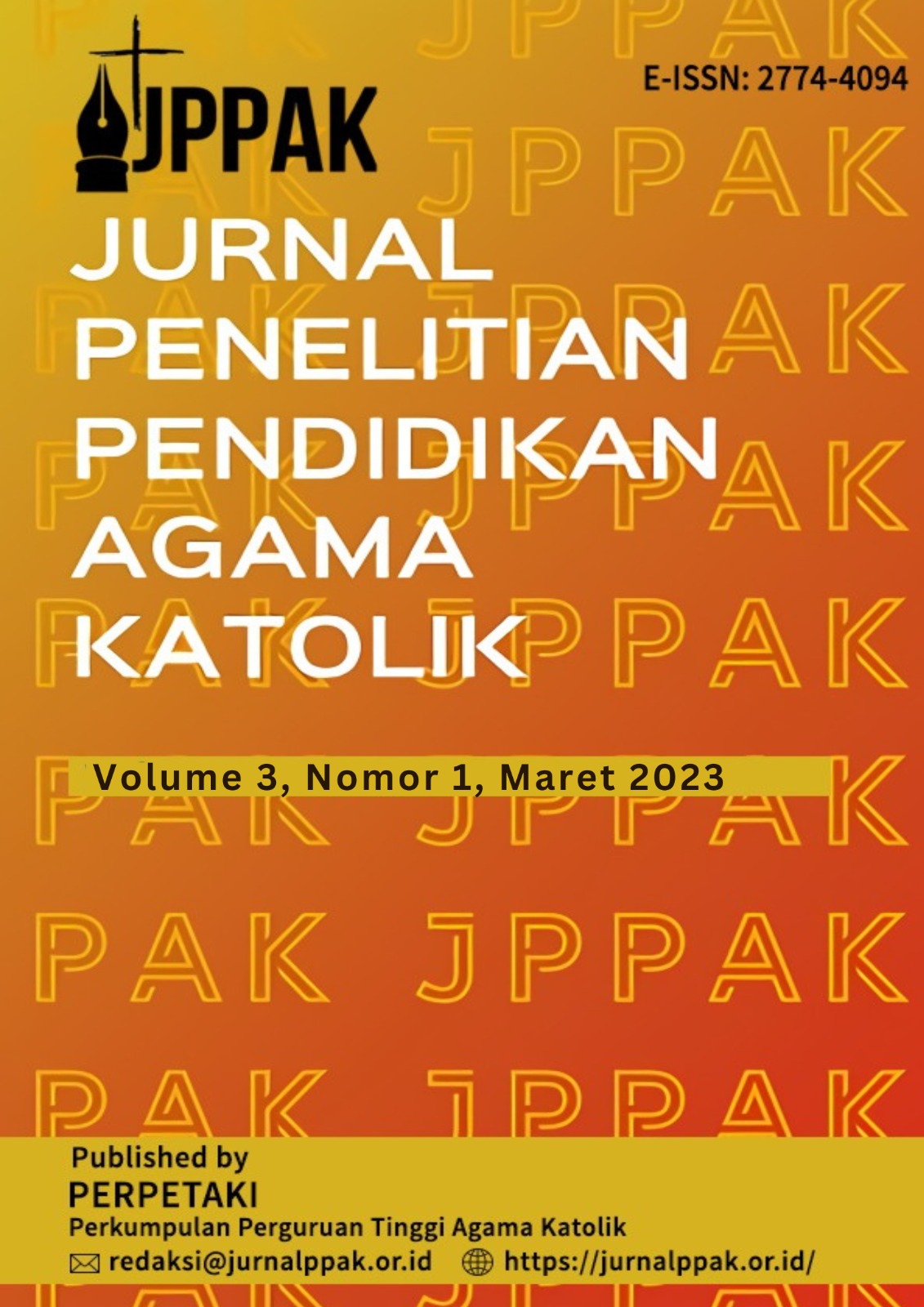Study of the Social Role of Schools in SD Kanisius Sorowajan Yogyakarta
DOI:
https://doi.org/10.52110/jppak.v3i1.77Keywords:
Social roles, school, communityAbstract
School is a good place to develop a community. Forming a society with high social awareness can be started by developing schools in the community. The collaboration between local community members and education observers in the Sorowajan Yogyakarta area has been fruitful. This study aims to describe the social role of Kanisius Sorowajan Elementary School in society. The research was conducted at SD Kanisius Sorowajan, Bantul, Yogyakarta. Researchers used a qualitative case study approach. The methods used in this research for data collecting were interviews and documentation. The data obtained was analyzed using techniques (in-depth analysis), namely by summarizing, categorizing, and interpreting the data into narratives. Informants or resource persons in this study were school principals, students, teachers, employees of Kanisius Sorowajan Elementary School, and members of the community around the school. The research was conducted from May to September 2022. The results showed that the social role of Kanisius Sorowajan Elementary School was found not only in its social activities but also in the school's active involvement in every aspect of the life of the community around the school. The social activities aforementioned were visiting sick residents, distributing groceries for the elderly, community members affected by Covid-19, community members in need, mourning, interfaith joint prayers, and ruwahan. Schools can support the community by providing locals for youth activities, arisan RT, tirakatan, alumni gatherings, Sunday School, wedding receptions, community Masses every Tuesday night, etc. while also providing mats, sound system, and sometimes assisting the society in repairing public streets.
Downloads
##submission.downloads##
Submitted
Accepted
Published
How to Cite
Issue
Section
License
Copyright (c) 2023 Purnama Dian, Emilya Tyas Wahyu Ningsih, Theresia Mardinah

This work is licensed under a Creative Commons Attribution-ShareAlike 4.0 International License.
Copyright Notice and Permissions
Jurnal Penelitian Pendidikan Agama Katolik offers immediate open access to all its content on the principle to make researches freely available to the public, especially to the scholars, to support greater global exchanges of knowledge. This journal encourages all scholarly authors to allow their research openly available, free access and without time restrictions.
All articles published Open Access will be immediately and permanently free for everyone to read and download. Under the CC BY-SA 4.0 license, authors retain ownership of the copyright for their article, however authors grant others permission to use the content of publications in Jurnal Penelitian Pendidikan Agama Katolik (JPPAK) in whole or in part provided that the original work is properly cited. Users (redistributors) of Jurnal Penelitian Pendidikan Agama Katolik (JPPAK) are required to cite the original source by including at least: the full title of the article, the author's or authors' full name(s), JPPAK as the initial source of publication, year of publication and volume number using a propriate citing method.
Copyright encompasses exclusive rights to reproduce and deliver the article in all form and media, including reprints, photographs, microfilms and any other similar reproductions, as well as translations. The reproduction of any part of this journal, its storage in databases and its transmission by any form or media, such as electronic, electrostatic and mechanical copies, photocopies, recordings, magnetic media is prohibited without consent of Jurnal Penelitian Pendidikan Agama Katolik (JPPAK).
Jurnal Penelitian Pendidikan Agama Katolik (JPPAK) is licensed under a Creative Commons Attribution Share-Alike 4.0 International. (CC BY-SA 4.0)
Authors who publish with Jurnal Penelitian Pendidikan Agama Katolik (JPPAK) agree to the following terms:
- Authors retain copyright and grant the journal right of first publication with the work simultaneously licensed under a Creative Commons Attribution Share-Alike 4.0 International (CC BY-SA 4.0) license that allows others to share the work with an acknowledgement of the work's authorship and initial publication in this journal.
- Authors are able to enter into separate, additional contractual arrangements for the non-exclusive distribution of the journal's published version of the work (e.g., post it to an institutional repository or publish it in a book), with an acknowledgement of its initial publication in this journal.
- Authors are permitted and encouraged to post their work online (e.g., in institutional repositories or on their website) after the publication on JPPAK, as long as it not published on other OJS for it will be treated as plagiarism by plagiarism checker apps. It can lead to productive exchanges, as well as earlier and greater citation of published work (See The Effect of Open Access).












